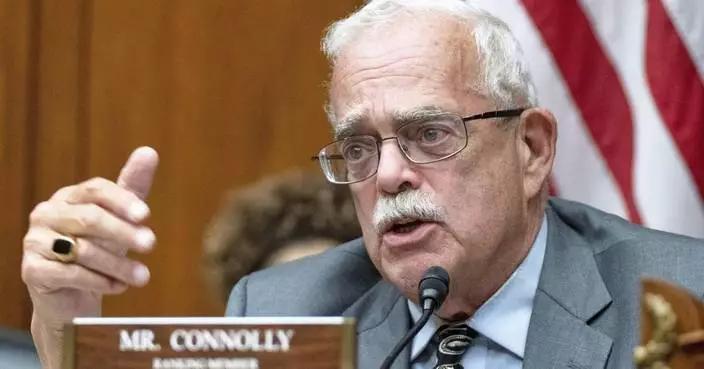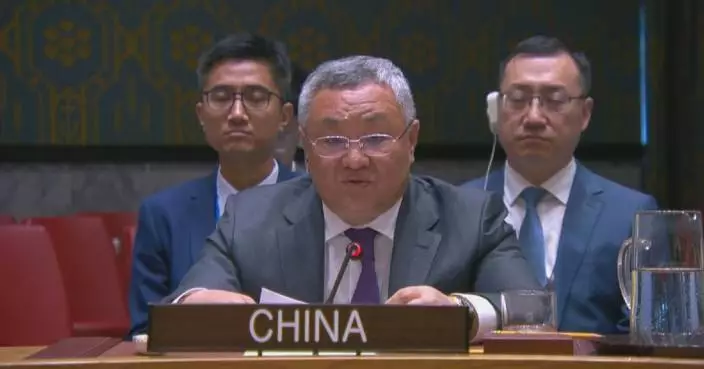Unfortunately, the boyfriend left her in the end...

Online image
A Thai woman's boyfriend was diagnosed with a type of rare eye cancer-like disease, causing his face to be badly deformed. However, his loyal girlfriend did not abandon him for his appearances, but rather stayed with him for three and a half years, a display of love that greatly moved netizens. Pitifully, her boyfriend passed away a few days ago. Unfortunately, she was not by him when he died, to which she posted on social media regretfully, "I didn't even stay with you..."

Online image
This Thai woman, named Atittaya Chumkeaw, shared a photo with her boyfriend on social media sites this February, piquing the interests of quite a lot of netizens, and making this story even more moving.

Online image
Ms Chumkeaw's boyfriend was only barely 21-years-old when he was diagnosed with retinoblastoma three years ago, but his cancer spread very quickly, causing his eyes to bulge, becoming swollen. His face also puffed up, decreasing vision and hearing abilities. This disease is quite rare, with only 5 people out of a million being infected each year.

Online image
Atittaya was devastated when she learned that her boyfriend had cancer, but she later decided to face it calmly and accompany her boyfriend where-ever the disease takes him. Regrettably, his condition rapidly deteriorated. and he became thinner and thinner each day as cancer took its toll. Atittaya was not at home on that fateful, Wednesday the 29th of August, when she received a message from her boyfriend's family to learn that he had passed away.
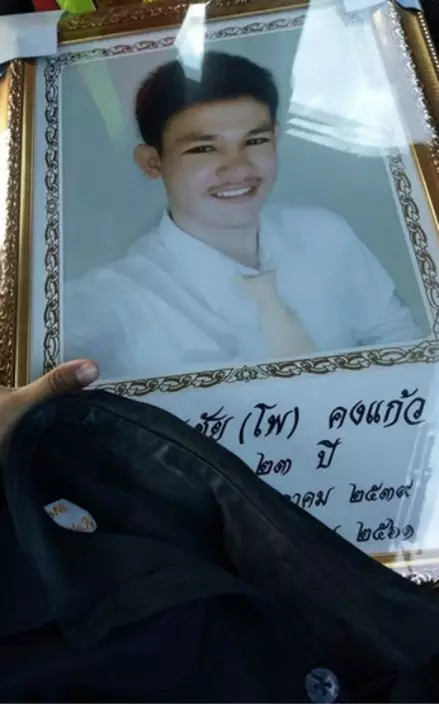
Online image
She later posted a message on social media saying, "I am really sorry, I didn't even stay with you..." Then she immediately rushed back to Thailand to send her late boyfriend off on his last journey. Many netizens sympathised with her, comforting her and hoping she will stay strong.
In a victory for global agrochemical maker Bayer, Georgia has become the second state to shield pesticide manufacturers from some lawsuits claiming that they failed to warn customers of potential dangers.
The legislation signed Friday by Georgia Gov. Brian Kemp is designed to protect Bayer from lawsuits claiming that it failed to tell customers that its popular weed killer Roundup could cause cancer. It's written broadly enough to provide legal protection in Georgia to any pesticide manufacturer that follows federal labeling requirements.
North Dakota's governor signed the first such law last month, and similar measures have been considered this year in at least nine other states.
Bayer, based in Germany, acquired Roundup with the 2018 purchase of St. Louis-based Monsanto. But it quickly was hit with an onslaught of lawsuits alleging that Roundup’s key ingredient, glyphosate, causes non-Hodgkin lymphoma. More than 67,000 of a total 181,000 claims involving Roundup remain outstanding, but a Bayer spokesperson said Monday that he didn't have specifics about how many of those are in Georgia.
Though some studies associate glyphosate with cancer, the U.S. Environmental Protection Agency has said it is not likely to be carcinogenic to humans when used as directed.
Bayer insists glyphosate is safe. But it has stopped using the ingredient in its residential version of Roundup and has set aside $16 billion to settle cases. It continues to use glyphosate in its agricultural version of Roundup but has warned that it might have to stop doing so if the legal costs keep mounting.
The new Georgia law is to take effect Jan. 1. That means it won't effect existing cases, such as a March decision by a Georgia jury to award nearly $2.1 billion in damages to a man who alleged Roundup caused his cancer.
Kemp decided to sign the legislation after hearing from farmers and others in the agricultural community, spokesperson Garrison Douglas said Monday.
Bayer has teamed up with a coalition of agricultural industry groups to mount a multiprong campaign. In addition to pursuing legislation in states and Congress, it also has asked the U.S. Supreme Court to intervene and has run ads on billboards, newspapers, TV and radio stations and internet sites touting the importance of glyphosate in agriculture.
Glyphosate has for decades been used an efficient way to control weeds with less tilling, which helps prevent soil erosion. For some crops, such as corn, soybeans and cotton, Roundup is designed to work with genetically modified seeds that resist glyphosate’s deadly effect.
Without glyphosate, weeds could become harder to control, crop yields could decline and groceries could become more costly, Bayer said.
The new law “demonstrates that Georgia stands with its farmers, who work tirelessly to produce safe and affordable food,” said Brian Naber, president of Bayer's crop sciences in North America, Australia and New Zealand.
Associated Press writer Jeff Amy contributed to this report.
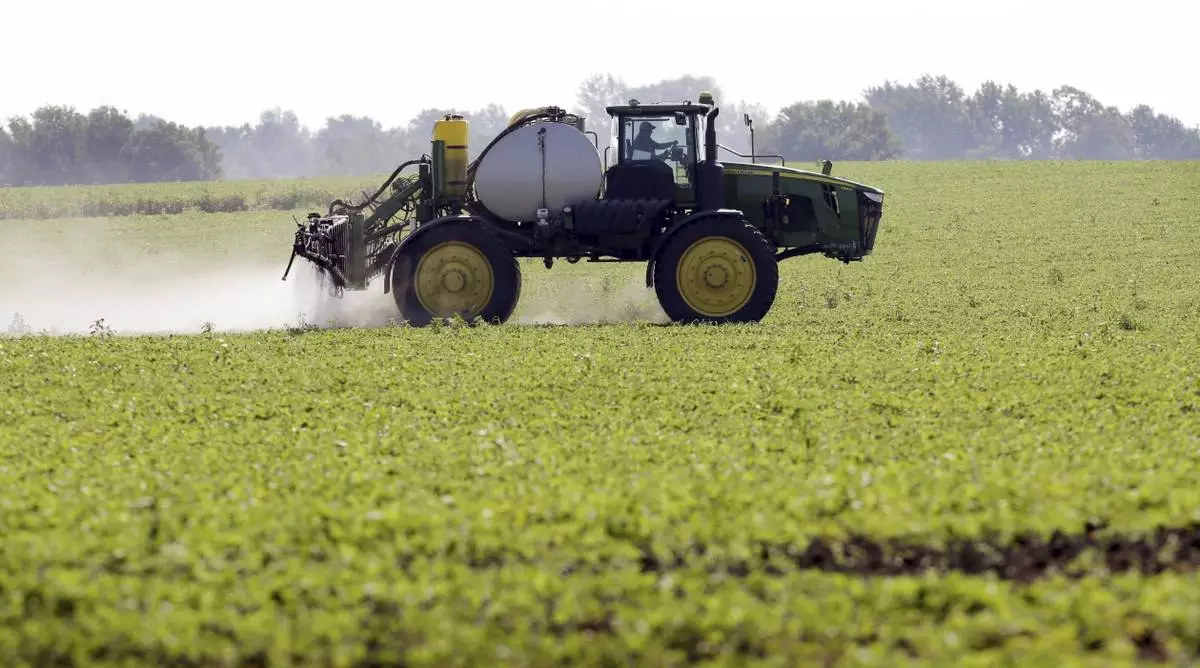
FILE - A soybean field is sprayed in Iowa, July 11, 2013. (AP Photo/Charlie Neibergall, File)
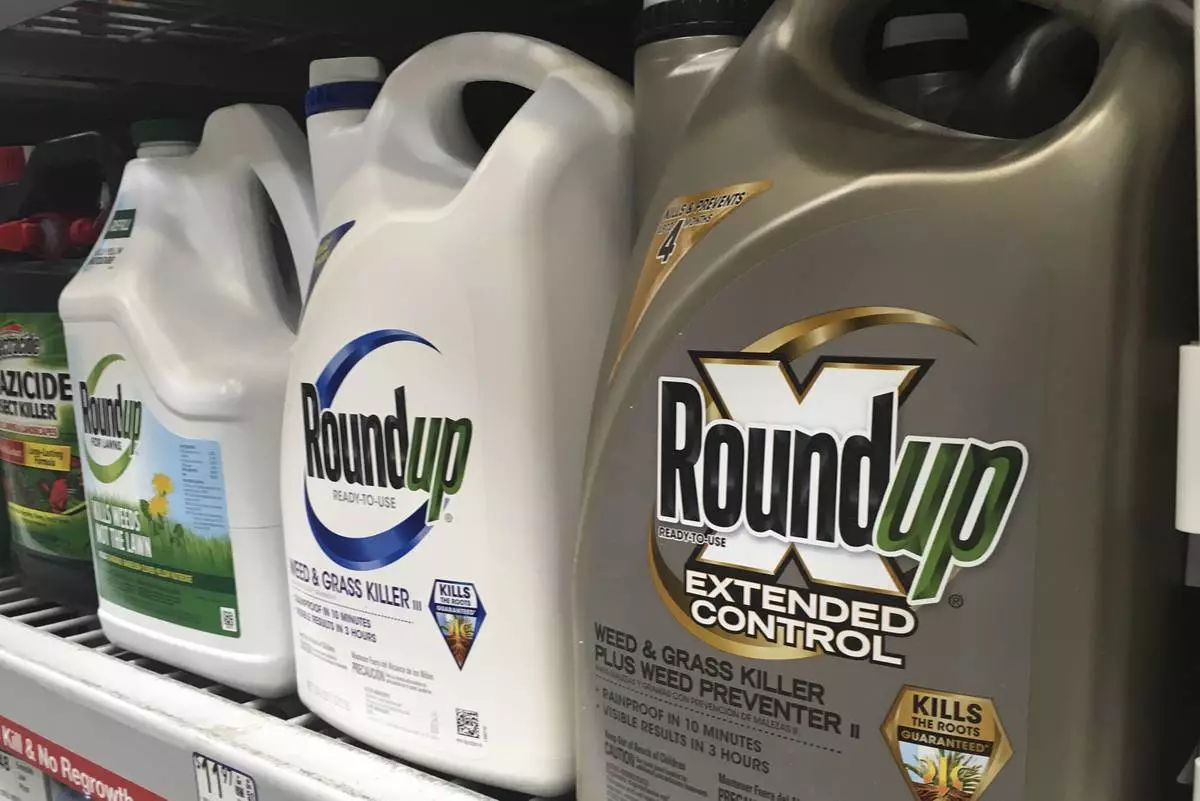
FILE - Containers of Roundup are displayed on a store shelf in San Francisco, Feb. 24, 2019. (AP Photo/Haven Daley, File)












